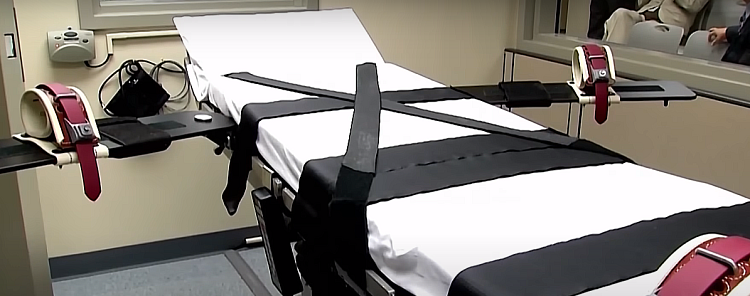An attorney representing an Alabama inmate, slated to become the first person in the United States executed by nitrogen gas, appealed to a federal appeals court on Friday, seeking to halt the upcoming execution due to the use of “untested methods.”
Kenneth Smith, aged 58, is set to be executed on Thursday, with a respirator-type mask replacing his breathing air with pure nitrogen, depriving him of the necessary oxygen to survive.
While three states, including Alabama, have authorized nitrogen hypoxia as an execution method, none have previously implemented it.
The 11th US Circuit Court of Appeals is currently reviewing the appeal, with discussions centered around the humaneness and potential risks of the proposed method.
Questions were raised about concerns such as the possibility of Smith choking on his own vomit, but a ruling date has not been indicated by the three-judge panel.
Debates Over Nitrogen Gas Execution

The utilization of nitrogen gas for capital punishment represents a historic first, facing criticism not only from certain medical practitioners but also from veterinarians who disapprove of its application in animal euthanasia.
In 2020, the American Veterinary Medical Association explicitly discouraged the use of nitrogen gas for euthanizing most mammals, labeling it as “distressing.”
If executed as planned on January 25, Smith’s capital punishment marks a significant development in the unconventional path of a new method not developed by scientists but rather by elected officials seeking an alternative amid mounting challenges faced by states reliant on lethal injections.
The consideration of employing nitrogen gas for state executions gained traction in 2015 when the Oklahoma state legislature, facing difficulties in executing lethal injections due to drug shortages, became the first to authorize its use.
Shortly after its passage, then-Governor Mary Fallin signed it into law, asserting that in the event lethal injection becomes unconstitutional or unavailable, the state could resort to execution by nitrogen gas.
During the appeal, Smith’s legal representative, Robert Grass, informed the judges that the state intends to execute Kenny Smith under extraordinary conditions.
Grass contended that the proposed method of administering nitrogen gas through a face mask is flawed and could expose Smith to an extended and unconstitutionally painful execution.
